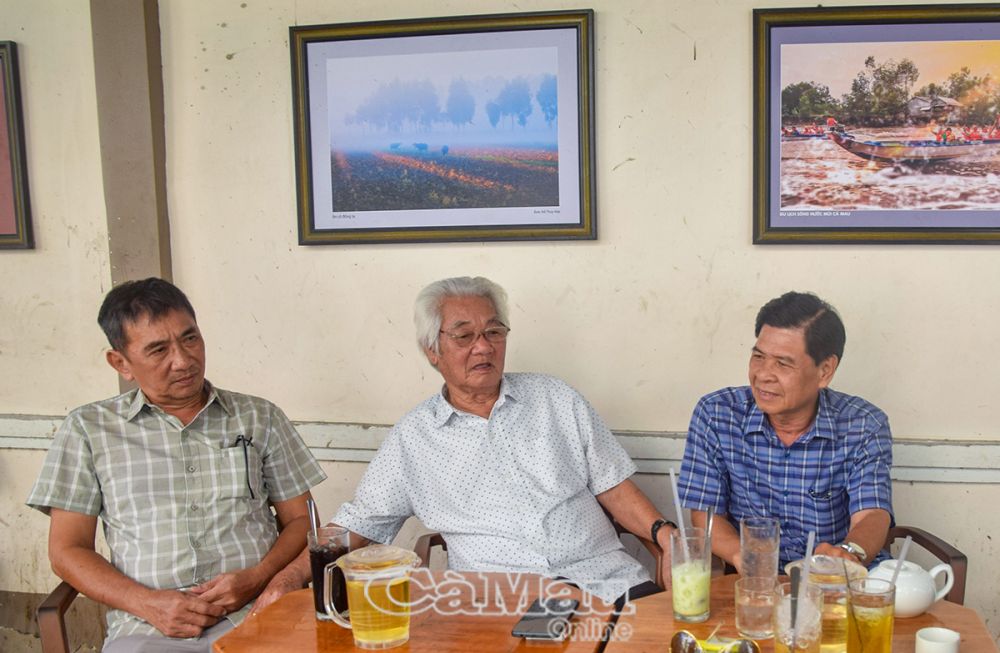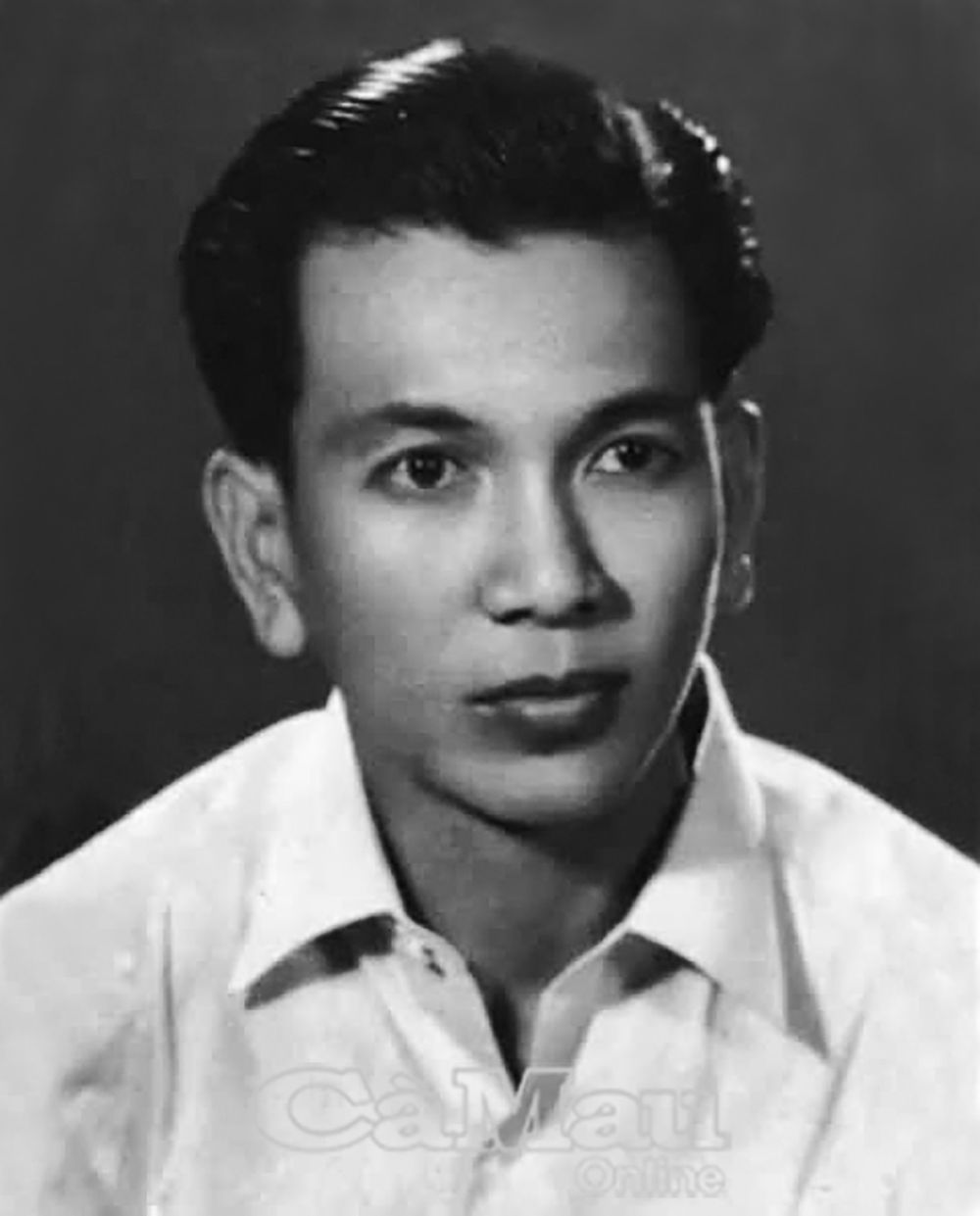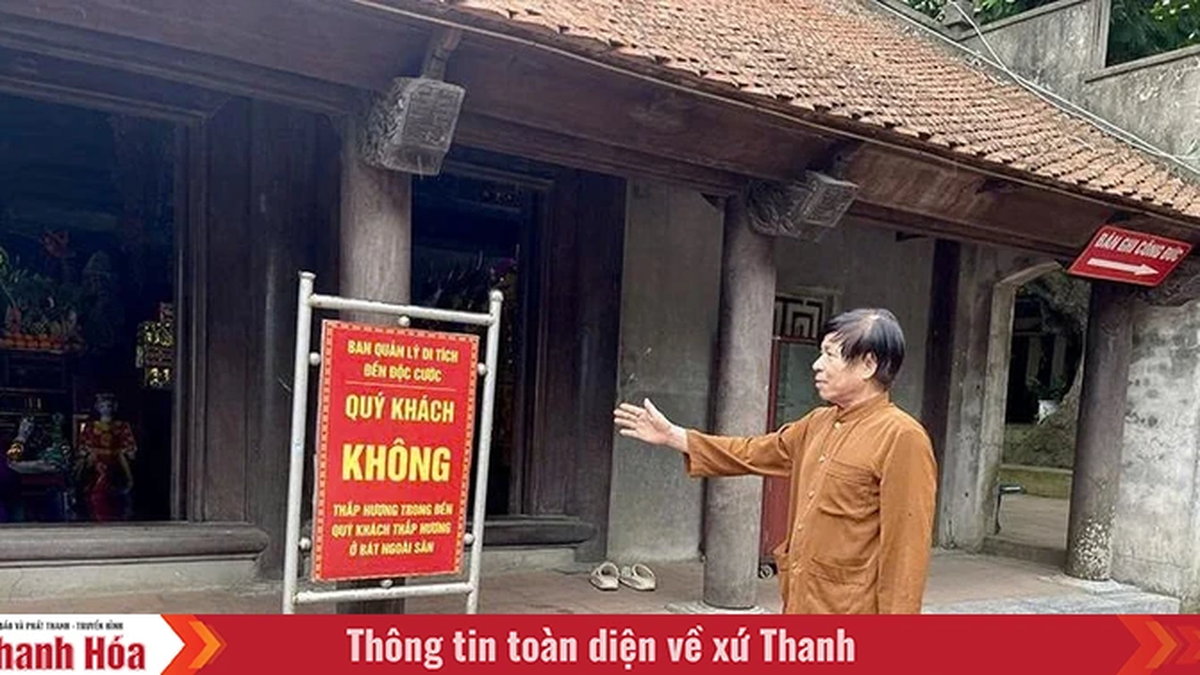- Renewing the Cai Luong stage
- Cai luong artists in the digital age
- People's Artist Bach Tuyet: Cai Luong must also adapt to develop
- "Fire tests gold" - The story of the family heirloom of cai luong
- The " Ca Mau River" amateur music troupe won 4 A prizes.
- Actively practicing and preparing for the Don ca tai tu festival
- Opening of the 8th Southern Amateur Music Festival in Ca Mau Province in 2024
- Closing ceremony of the 8th Southern Amateur Music Festival in Ca Mau province, 2024
|
Nguyen Ngoc Cung was born on February 8, 1927, in a house near the riverbank of Ca Mau town (now house No. 21, Trung Trac street, Ca Mau city). His father was Mr. Nguyen Dao Duc, who started out as a silversmith and later became a gold shop owner.
In the 1930s, Ca Mau town did not have a high school, so Nguyen Ngoc Cung was sent by his father to Can Tho to study. At that time, Nguyen Ngoc Cung spent part of his money to learn to play musical instruments and sing traditional opera and reformed opera. His talent was evident and encouraged by many people. Nguyen Ngoc Cung wished that one day, vọng cổ songs and reformed opera would be served to the workers in his country.
In 1945, Nguyen Ngoc Cung joined the Vanguard Youth Organization. The following year, he and his father were arrested by the French colonialists and imprisoned in Ben Tre. In 1947, due to lack of evidence, he and his father were released. After being released from prison, Nguyen Ngoc Cung escaped to join the resistance and was admitted to the Vietnam Workers' Party.
According to documents, around the beginning of 1950, vọng cổ was almost banned from being sung in the liberated areas of the South. The reason was because its melody was too sentimental, dampening the fighting spirit. This ban seemed to be unpopular with the people, so many artists and writers raised the issue that it should be reconsidered.
At the end of 1951, the Southern Literature and Arts Association organized a conference to debate the art of reformed opera. There were many conflicting opinions, but in the end, they came to the conclusion that reformed opera still had an effect in serving the resistance war; at the same time, it was proposed that reformed opera would be performed at the closing ceremony, inviting leaders of the Southern region to come and watch.
Nguyen Ngoc Cung was assigned to write a short cai luong play to perform. Being able to compose and perform was something he had long awaited, so in just one morning, he finished writing the cai luong play "Debt to the country, love to the family".
The performance was successful, the leaders of the Party and the government of the South decided to restore the form of Cai Luong singing. Since then, many Cai Luong troupes were established, from the provinces of the West to the provinces of the Southeast. The composers were passionate about composing, many Cai Luong plays were born one after another, among them, Nguyen Ngoc Cung had the plays "Ven Tinh Ca Nuoc", "Hai Bo Rom"... and especially, the play "Huyet Le Thu" by Nguyen Ngoc Cung and Chi Lang won the first prize of Cuu Long 2 award initiated by the Department of Propaganda and Arts of the South. The play "Hai Bo Rom" praised the solidarity between the army and the people, was taken to many places to perform, becoming a great source of encouragement for the soldiers and people of the South.
In early 1955, at the mouth of the Doc River, playwright Nguyen Ngoc Cung said goodbye to his wife, children, and hometown and boarded a ship to the North. In Hanoi, he composed many works of various genres to serve the resistance war against the US to save the country; including the cai luong play “Kieu Nguyet Nga”; the script for the feature film “Dynamic Sea”; the radio opera “Chuyen Chuyen Duoc Nguyet”, the cai luong play “Truong Dinh”...
The feature film "Turbulent Sea" (Director Mai Loc, cameraman Khuong Me) was completed in 1957, in Sam Son, Thanh Hoa, about the Hon Khoai Uprising, led by Hero Phan Ngoc Hien.
In the North, he was a founding member of the Vietnam Stage Artists Association, a founding member of the Vietnam Cinema Association, and a founding member of the Vietnam Writers Association. In 1958, he was a Standing Member, Secretary of the Party - Vietnam Stage Artists Association, and participated in the establishment of the Southern Reformed Theater Group in the North.
As the leader of the Vietnam Theatre Association, he was on the list of nominees to study abroad, but he refused. He always cherished the dream of one day returning to the South, bringing his singing to serve the resistance against the US, hoping for the day of reunification of the country. Therefore, in 1961, Composer Nguyen Ngoc Cung chose the path of going to B.
Returning to the South, he worked in the Literature and Arts Subcommittee, under the Central Propaganda Department of the Southern Bureau, and was assigned to the Nam Can mangrove forest to direct the development of the literature and arts movement in Ca Mau province. Meritorious Artist (NSUT), Director Huynh Hanh, who was then Deputy Head of the Ca Mau Liberation Art Troupe, said that Composer Nguyen Ngoc Cung had been away from his wife and children for 9 years without seeing them again. In 1964, at the base of the Ca Mau Liberation Art Troupe (Ong Don canal, Nam Can mangrove forest), the troupe's leaders understood, arranged accommodation, and assigned people to pick up his wife, so that the couple could meet for a few days.
In 1965, Composer Nguyen Ngoc Cung returned to the Central Propaganda Department of the Southern Central Office in Tay Ninh. On June 18, 1966, B52 bombed the Central Propaganda Department base in Suoi Cay (Tay Ninh), killing Composer Nguyen Ngoc Cung, Pham Tran, Phong Anh and Artist Bay Luong. Sadly, after that, B52 bombed a second time, and the graves of Martyr Nguyen Ngoc Cung and his comrades were buried in the ground.
His wife, Mrs. Tran Thi Lan Thanh, was always faithful. When their first daughter was over 1 year old, she sent her husband off to the assembly area. After more than 9 years, the couple had the opportunity to reunite. Along with their first daughter named Hoa, they also had a son named Nguyen Ngoc Binh. Naming him Hoa - Binh, Nguyen Ngoc Cung wanted to convey his belief in the day of peace and national reunification.
After the liberation day, the Southern Opera Troupe from the North returned to Ca Mau, the troupe visited the family of the composer Nguyen Ngoc Cung. At Ca Mau Stadium, the troupe had a night of performing the opera "Kieu Nguyet Nga" right in the composer's hometown.
In May 1975, the cai luong play "Kieu Nguyet Nga" by Nguyen Ngoc Cung was one of the first cai luong plays performed in Saigon (Quoc Thanh theater) after the country's reunification. Revolutionary artist Nguyen Ngoc Cung had fallen, but his vọng cổ songs and cai luong plays still resounded during the days of national reunification.
In the years after the liberation, Ho Chi Minh City gathered the remains of martyrs at the city's Martyrs' Cemetery. His grave (symbolic grave) was respectfully placed in the Typical Martyrs' Grave Area, next to the grave of Playwright Tran Huu Trang. The name of Playwright Tran Huu Trang was given to a reformed opera troupe and a theater in Ho Chi Minh City. In Ho Chi Minh City, there is a street in District 8 named Nguyen Ngoc Cung. In Ward 8, Ca Mau City, there is also a street later named Nguyen Ngoc Cung.
Composer Nguyen Ngoc Cung devoted his entire life to the resistance literature. From Ca Mau, he boarded a ship to the North; from the North, he crossed Truong Son to the battlefield in the South. His vọng cổ songs and cải lương plays were present in both the North and the South, contributing to the encouragement of patriotism of the people, serving the resistance mission in a timely manner.

Meritorious Artist and Director Huynh Hanh and I were shown the script for the film “Dynamic Sea” by screenwriter Trinh Thanh Vu, Chairman of the Literature and Arts Association of Ca Mau Province. Through that, we understood the wish of the playwright Nguyen Ngoc Cung, in the preface of the film: “Hopefully one day, this 60-minute film will be shown to the people of Ca Mau, even just once”. The late playwright’s wish has not been fulfilled for many years.
Screenwriter Trinh Thanh Vu shared: “The script of the film “Dynamic Sea” has been nominated for the Phan Ngoc Hien Award for nearly 10 years, but has not yet met the requirements for recognition. Because according to the regulations, the work must be shown to the public. On the side of the Literature and Arts Association, we will ask for the opinions of the Provincial Party Committee and the Provincial People's Committee to go to Hanoi to ask the Cinema Department to print the film “Dynamic Sea” to show to the people of Ca Mau. This is the first film of the Vietnamese revolutionary cinema and will be a valuable document serving the propaganda to celebrate the 85th anniversary of the Traditional Day of the Party Committee, people and army of Ca Mau province (December 13, 1940 - December 13, 2025)”.
Also in the line of thoughts of remembrance, Meritorious Artist, Director Huynh Hanh wishes: "Composer Nguyen Ngoc Cung has many valuable songs and plays serving the revolution through two resistance wars. He has great contributions to Southern amateur music and reformed opera. I hope that our province will have an award or composition named after Nguyen Ngoc Cung."
Nguyen Ngoc Binh was only 5 months old when his father died. He is now nearly 60 years old. He expressed: “My father's house is currently managed by the State. I sincerely hope that the provincial agencies will resolve this so that I can worship and display relics about the life and works of my father, Composer, Film Screenwriter, Martyr Nguyen Ngoc Cung, right at house No. 21, Trung Trac, Ward 2, Ca Mau City, where he was born nearly 100 years ago.”
I hope that one day the film “Dynamic Sea” by Nguyen Ngoc Cung will be shown to the people of Ca Mau. I hope that one day the name of composer Nguyen Ngoc Cung will be chosen for an award for composing or performing cai luong opera. I hope to worship him in my own house... Those wishes will come true, and it is also a way to show gratitude and remember the talented revolutionary artist who made great contributions to the resistance war and the cai luong art of the South. Doing this will also help to help cai luong songs and plays still resonate in life./.
Chung Thanh Thuy
Source: https://baocamau.vn/soan-gia-nguyen-ngoc-cung-mong-co-mot-ngay--a36386.html


 Portrait of Composer Nguyen Ngoc Cung.
Portrait of Composer Nguyen Ngoc Cung.

















































![[Maritime News] More than 80% of global container shipping capacity is in the hands of MSC and major shipping alliances](https://vphoto.vietnam.vn/thumb/402x226/vietnam/resource/IMAGE/2025/7/16/6b4d586c984b4cbf8c5680352b9eaeb0)













































Comment (0)